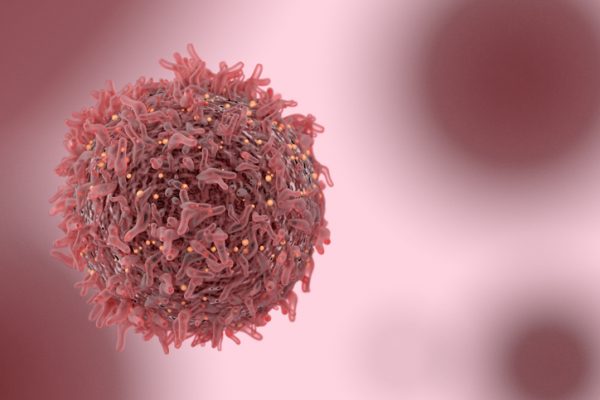
Two years after it hit the market, the first CAR-T cell therapy to win Food and Drug Administration approval has shown results in real-world use consistent with those of the clinical trial that led to its approval.
Basel, Switzerland-based Novartis announced Monday the presentation of data on Kymriah (tisagenlecleucel) in adult patients with diffuse large B-cell lymphoma and among children and young adults with acute lymphoblastic leukemia. The data were presented at the American Society of Hematology’s annual meeting in Orlando, Florida, which wrapped up Tuesday.
The studies were based on data from the Center for International Blood & Marrow Transplant Research’s Cellular Therapy Registry. Data on DLBCL came from 26 centers, while ALL data came from 40 centers.
Kymriah, for which Novartis first one approval in ALL in summer 2017, is one of two approved CAR-T cell therapies and currently the only one approved for two cancers. The other one is Gilead Sciences’ Yescarta (axicabtagene ciloleucel), which is only approved for DLBCL. Numerous others are in development, including for other cancers, as well as CAR-Ts made from donor T cells rather than from patients’ own cells, as Kymriah and Yescarta are.
The data provide an important picture of how the therapy is performing in the so-called “real world,” as compared with the more controlled confines of a clinical trial. Key to that performance is not only efficacy, but also toxicity, with cytokine release syndrome (CRS) and neurological toxicity being the most severe side effects associated with CAR-T. CRS is a spectrum of symptoms that results from rapid killing of cancer cells by engineered T cells.
Data presented at ASH showed that Kymriah’s efficacy was similar to what it displayed in the Phase II JULIET trial on which its approval was based. In an 80-patient analysis, the overall response rate was 58%, with 40% of patients achieving a complete response. That compared with respective rates of 52% and 38% among 115 patients in JULIET. Among 83 patients evaluated for safety, severe or worse CRS and neurological toxicity occurred in 4% and 5% of patients, compared with 23% and 11% in JULIET, suggesting a more favorable safety profile, though the two studies used different grading scales. Still, the percentage of patients who received drugs to mitigate CRS was higher in JULIET than in the clinical trial.

A Deep-dive Into Specialty Pharma
A specialty drug is a class of prescription medications used to treat complex, chronic or rare medical conditions. Although this classification was originally intended to define the treatment of rare, also termed “orphan” diseases, affecting fewer than 200,000 people in the US, more recently, specialty drugs have emerged as the cornerstone of treatment for chronic and complex diseases such as cancer, autoimmune conditions, diabetes, hepatitis C, and HIV/AIDS.
“With increased experience supplemented by real-world data, physicians like myself have a better understanding of Kymriah and its safety profile,” DLBCL lead author and Ohio State University oncologist Dr. Samantha Jaglowski, in a statement. “This, along with the current practice of supportive care for CAR-T therapy, provides the ability to routinely use this therapy in the hospital outpatient setting, which can reduce financial burden on patients and hospitals alike.”
The ALL study included 146 children and young adults, as compared with 79 patients who took part in the Phase II ELIANA trial that led to Kymriah’s initial approval in that disease. In the analysis, the complete response rate was 85%, compared with 82% in ELIANA. Real-world rates of severe or worse CRS and neurological toxicity were 14% and 8%, compared with 48% and 13% in ELIANA, with the two studies likewise using different grading scales.
“It is exciting to see how oncologists are using Kymriah and how patients are responding to it in routine clinical practice,” said lead author Dr. Stephan Grupp, director of the Children’s Hospital of Philadelphia’s Cancer Immunotherapy Program, in a statement. We are seeing broader efficacy data that replicate what we saw in the pivotal trial, and the collection of these data is ensuring that we are getting a clear view of adverse events when administering Kymriah.“
A potential competitor to both approved CAR-T cell therapies, at least in DLBCL, is Bristol-Myers Squibb’s lisocabtagene maraleucel, which it acquired earlier this year when it acquired Celgene, which itself had bought original developer Juno Therapeutics last year. Data from the pivotal TRANSCEND NHL 001 study presented at ASH showed that among 256 patients evaluable for efficacy, the overall response rate was 73%, with a complete response rate of 53% and median overall survival of 21.1 months. The median OS for patients who achieved a complete response was not reached, with 85.5% of those patients still alive at 12 months. Severe or worse CRS only occurred in 2% of the 269 patients evaluable for safety, while severe or worse neurological toxicity occurred in 10%. Experts have pointed to lisocabtagene maraleucel as having a potentially better safety profile than the other two CAR-Ts. BMS said it plans to complete its regulatory approval application for the CAR-T by the end of this year.
Photo: CGToolbox, Getty Images













